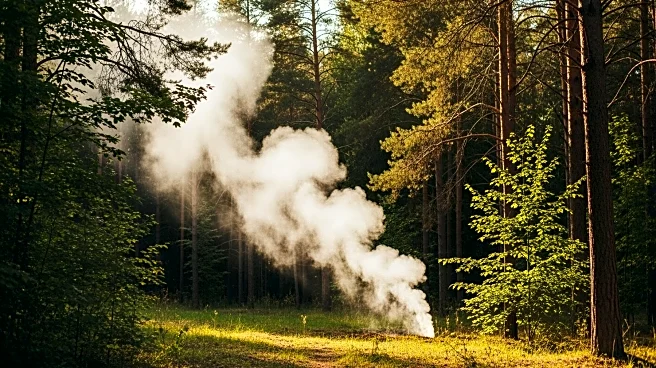What's Happening?
Protests have swept across Mexico following the assassination of a mayor who had accused the president of failing to address cartel violence. Large crowds gathered in Mexico City, leading to clashes with
police near the National Palace. Officers used tear gas and fire extinguishers to control the situation, resulting in injuries to 100 police officers and 20 civilians. The protests, organized by a group called 'Generation Z Mexico,' aim to demand stronger efforts to combat violence and improve public safety. The movement is non-partisan and represents young people advocating for change.
Why It's Important?
The protests underscore the growing influence of Generation Z in political activism, as young people increasingly mobilize to address social and political issues. The unrest highlights the public's frustration with government efforts to tackle cartel violence and corruption. The involvement of Gen Z reflects a broader global trend of youth-led movements demanding accountability and reform. The situation in Mexico may prompt government officials to reassess their strategies for addressing violence and engaging with younger demographics.
What's Next?
Authorities may face pressure to investigate the origins of the protests and address the concerns raised by demonstrators. President Claudia Sheinbaum has called for peaceful demonstrations, emphasizing the importance of maintaining public order. The government may need to engage with youth leaders to address their demands and prevent further unrest. Additionally, the international community may monitor the situation closely, as similar youth-led movements gain traction worldwide.
Beyond the Headlines
The protests in Mexico could signal a shift in political dynamics, as younger generations become more vocal and influential in shaping public discourse. The movement may inspire similar actions in other countries, highlighting the interconnectedness of global youth activism. The government's response to the protests could have long-term implications for its relationship with young citizens and its ability to address systemic issues.








